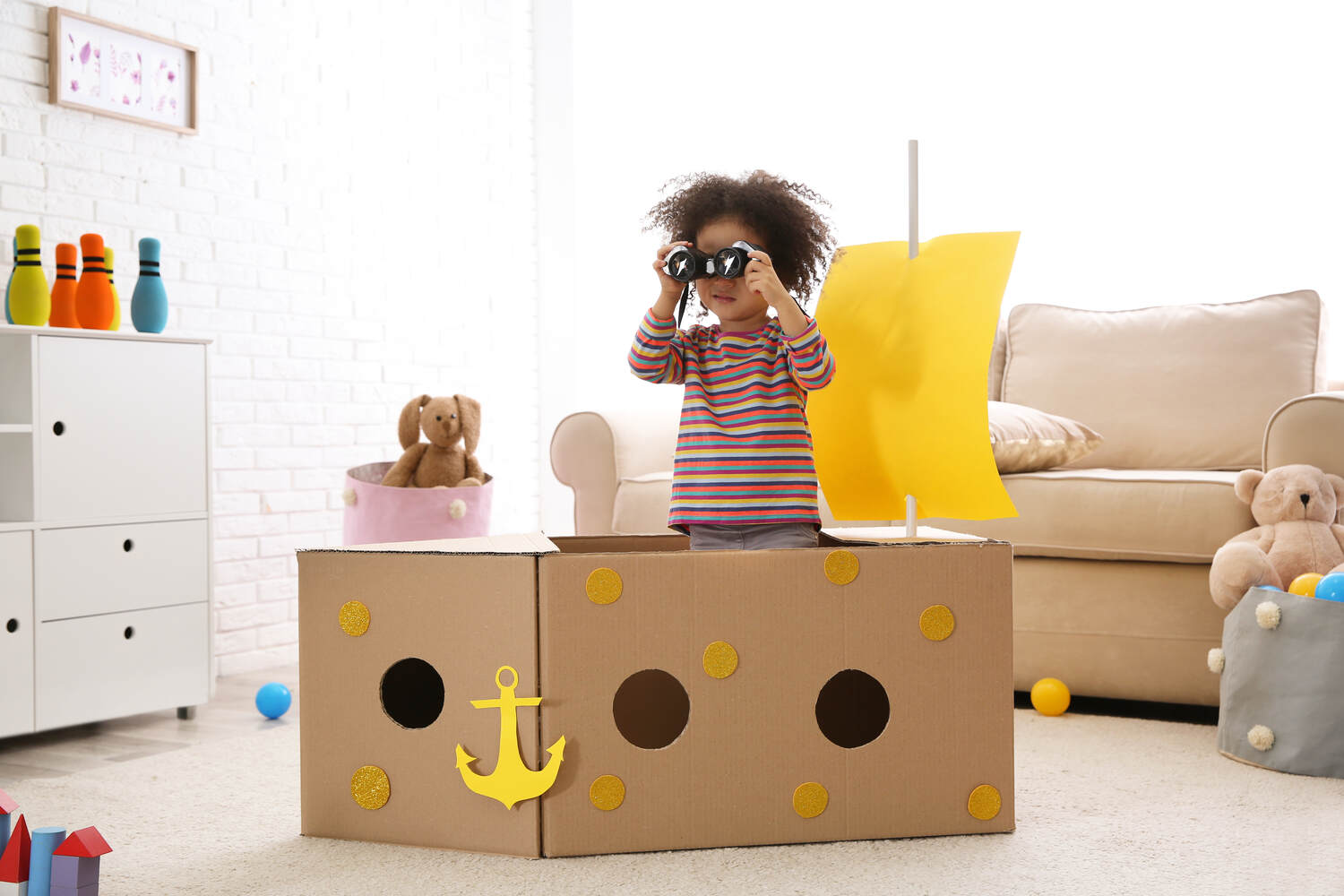
Logic will take you from A to B. Imagination will take you anywhere – Albert Einstein.
The mind of a toddler is full of boundless creativity. Ideas that are innocent yet magical to create something innovative every now and then. As a parent, you’ve likely witnessed your toddler’s imagination take flight in everyday moments. They’re always bubbling with new thoughts and ideas, constantly exploring the world, and finding inventive ways to tackle life’s puzzles.
When a toddler’s imagination know no limits, it’s also time for you to encourage them to do more of it. By engaging them in pretend play, reading imaginative story lines, you can harness your toddler’s imagination from ordinary to extraordinary. Here are a few tips on how to encourage your toddler’s imagination.
In This Article
- Why is it Important to Encourage Your Toddler’s Imagination?
- What is More Important in a Kid’s Early Years- Imagination And Creative Thinking or Knowledge?
- How Can You Help Develop Your Toddler’s Imagination?
- Top 10 Tips to Encourage Your Toddler’s Imagination
- What Will Your Toddler Learn Through Imaginative Play?
- How Messy Should You Let Your Toddler be?
- Is it ok to Set Limits on Toddler’s Imaginative Play?
- How to Avoid Fights Over Your Toddler’s Imaginary Play?
- What to do Next to Encourage Toddler’s Imagination?
- FAQ’s
Why is it Important to Encourage Your Toddler’s Imagination?

Being imaginative and thinking out of box means showcasing creativity in the finest ways. These are some of the things that differentiate one person from the other in today’s world. And what better age than toddler-hood to nourish your little one’s imaginative spirit!
A toddler who is encouraged to be imaginative and creative when young, will be more equipped to find creative solutions to problems in adulthood. The process of imagination is a cognitive exercise that enables generating new ideas from old. It also teaches toddlers alternate possibilities for learning and problem solving (1). It is vital to nurture and encourage your toddler’s imagination for the following reasons-
- Imagination allows creative ideas to take shape
- Toddlers can approach challenges without fear
- Imaginative play involves interaction with fictional and made-up characters that helps develop communication
- Nurtures self-expression of their talents
- Boosts confidence
- Imagination stimulates logical thinking and memory
- Learning new things through trial and error
- Imagination helps to face failures and try again
What is More Important in a Kid’s Early Years- Imagination And Creative Thinking or Knowledge?

In early years, imagination and creative thinking plays a significant role in learning and acquiring new knowledge. When toddlers communicate with imaginative companions while pretending to play, they do learn the basics of social interaction and communication building (2).
Toddlers are naturally curious and want to explore their surroundings fully. Thus, they are learning new things through various experiences from time to time. In a way, they’re imagining as well as gaining knowledge simultaneously.
It can be said that both imagination/creative thinking and knowledge acquisition happen together. They just serve various purposes in the toddler’s overall development and are equally important.
Imagination/Creative Thinking-
- Helps in generating new ideas
- Toddlers get a chance to solve problems in newer ways
- Helps to experiment with new ideas
- Fosters innovation
- Nurtures curiosity
Knowledge Acquisition-
- Helps to learn facts and concepts
- Important for academic success
- Fosters a sense of competition
- Knowledge is vital for drawing connections between ideas
- It helps in analyzing information
How Can You Help Develop Your Toddler’s Imagination?
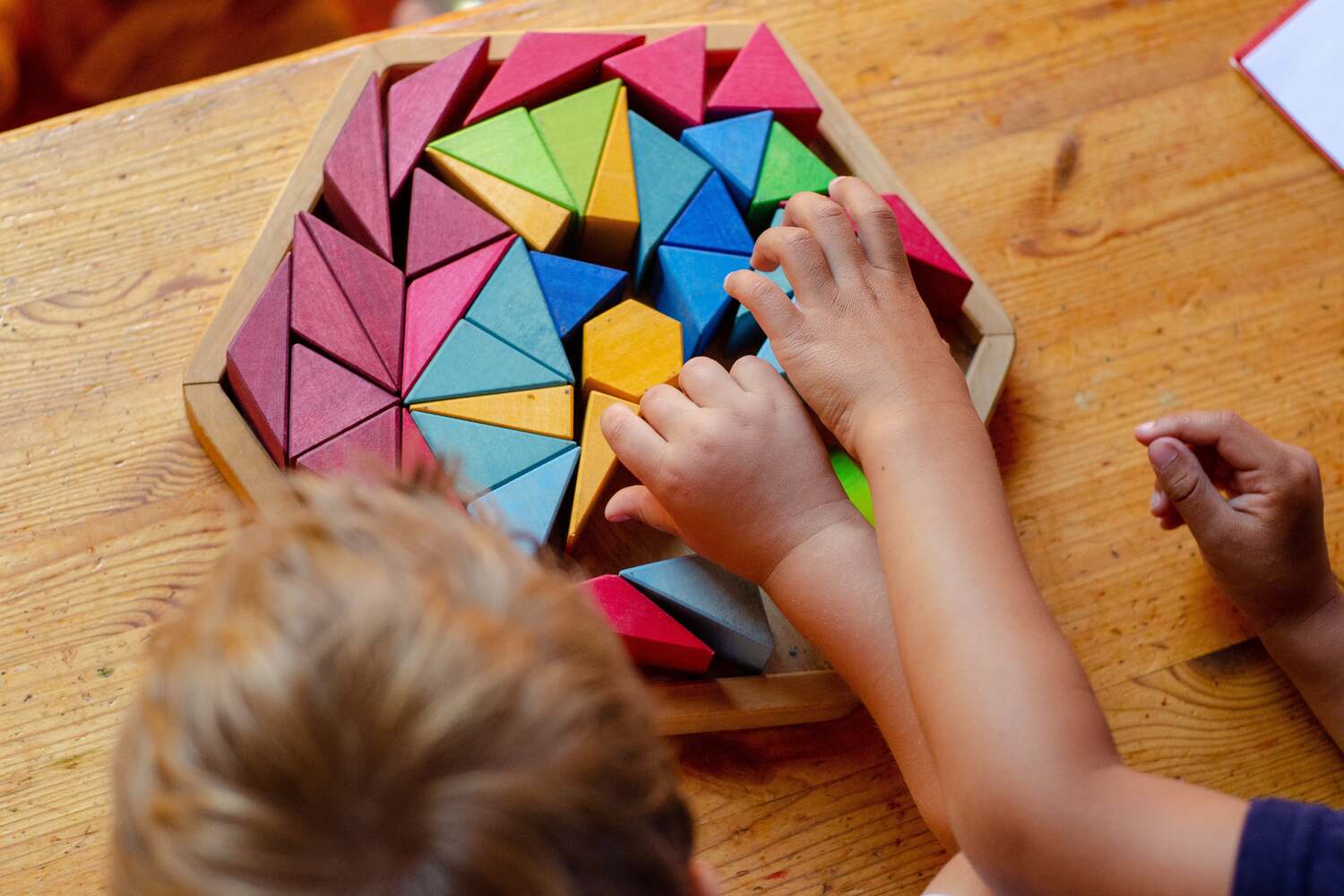
Stimulating your toddler’s brain by doing activities that help create connections in their brain is the first step to raise an imaginative child. With repetition, these connections create networks that enable them to learn and evolve.
Their brain just needs some input that it can process, so the more you expose them to new situations, the better their imaginative ability will be. Being a parent, you can develop your toddler’s imagination by-
- Encouraging them to play with age-appropriate toys as much as possible
- Give them blocks, clay dough, or art supplies to nurture their imagination
- Help them engage in imaginative play, pretending various characters and develop communication
- Expose them to nature and encourage exploration to foster self-directed learning
- Read story books with them that has lots of pictures so that they can relate it with real-life scenarios
Top 10 Tips to Encourage Your Toddler’s Imagination
A toddler is the most imaginative person on this planet. They do not know what the “box” is, what constraints it offers – so thinking ‘out of the box’ comes naturally for them. Here are 10 tips to nurture your toddler’s imagination and help them become creative adults-
1. Read

Pick up books that have large colorful pictures. It could be either picture books or simple story books. The idea is to expand your toddler’s world – with unfamiliar places, animals, birds, and objects. It will improve their vocabulary and it will also imprint images in their brain. Now with repetition and association, they will be able to make connections between what they have seen in books and what it is in real life. Start with reading bed time stories to your little ones.
2. Listen

Almost as important as reading, is listening to your tiny tot patiently. Listening to your toddler’s narration of their thoughts and imagination is a great way to develop and appreciate their creativity. Of course, they might not be able to express themself well initially. And you might not be able to understand or guess what they are saying. But with time things will improve. Listen patiently to their queries and answer them honestly as always.
3. Encourage Imaginative Play

Pretend play or imaginative play is a great way for toddlers to enact real life and imaginary scenarios. When your toddler says “I am teacher, you are baby” or “I am a little rabbit” or “I am a monster” and try to pretend to be someone they are actually not, they’re at their creative best. Play along with them and let them be imaginary characters. This not only sparks your toddler’s imagination, it also helps them solve problems.
4. Invent Stories
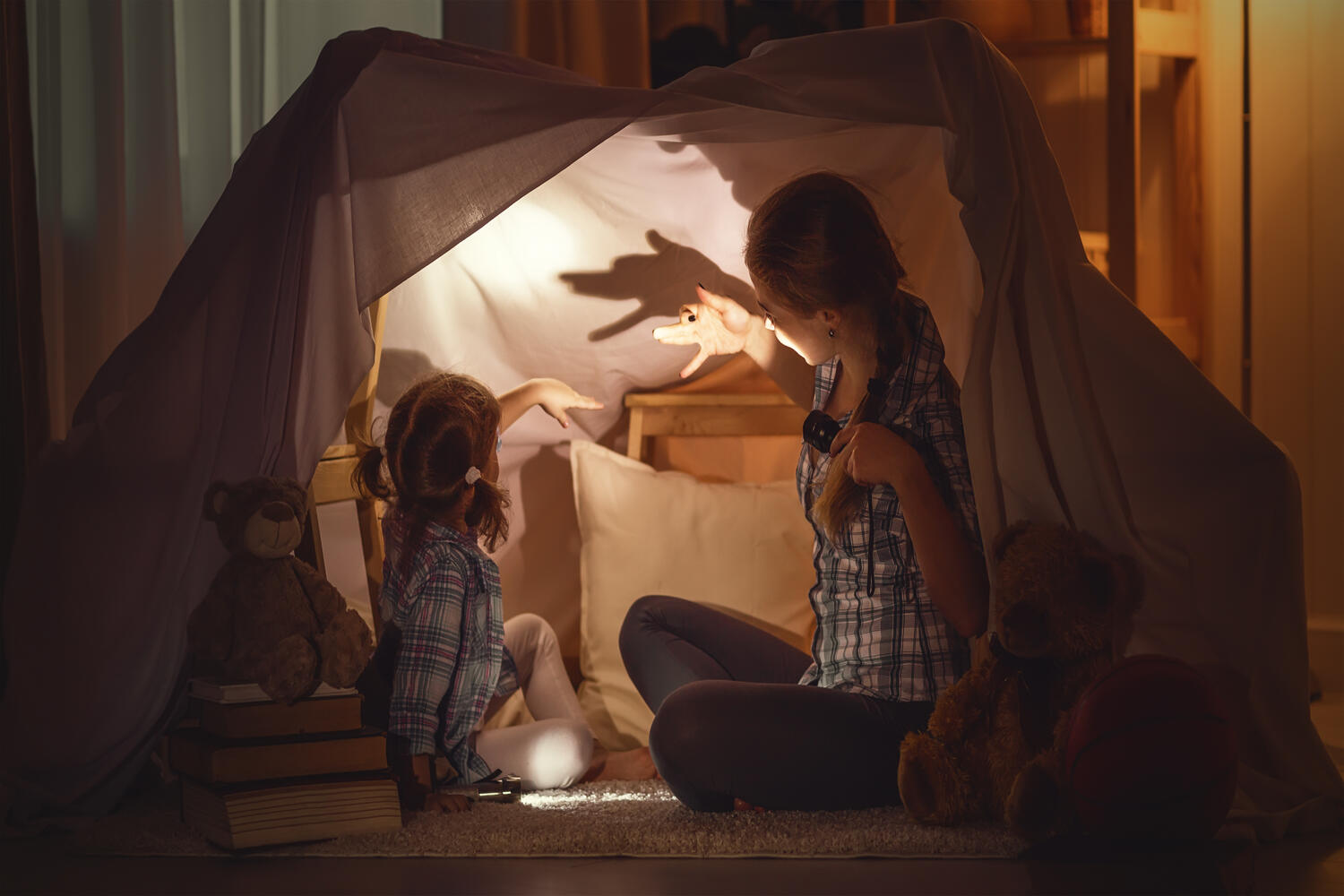
Just like reading out stories, spend some time every day to make up stories. Without any pictures to guide their imagination, the mind is free to imagine things in whatever way it wants. Include stories where your toddler is the main character. That will excite them more as they can imagine themself in the story.
5. Use Props
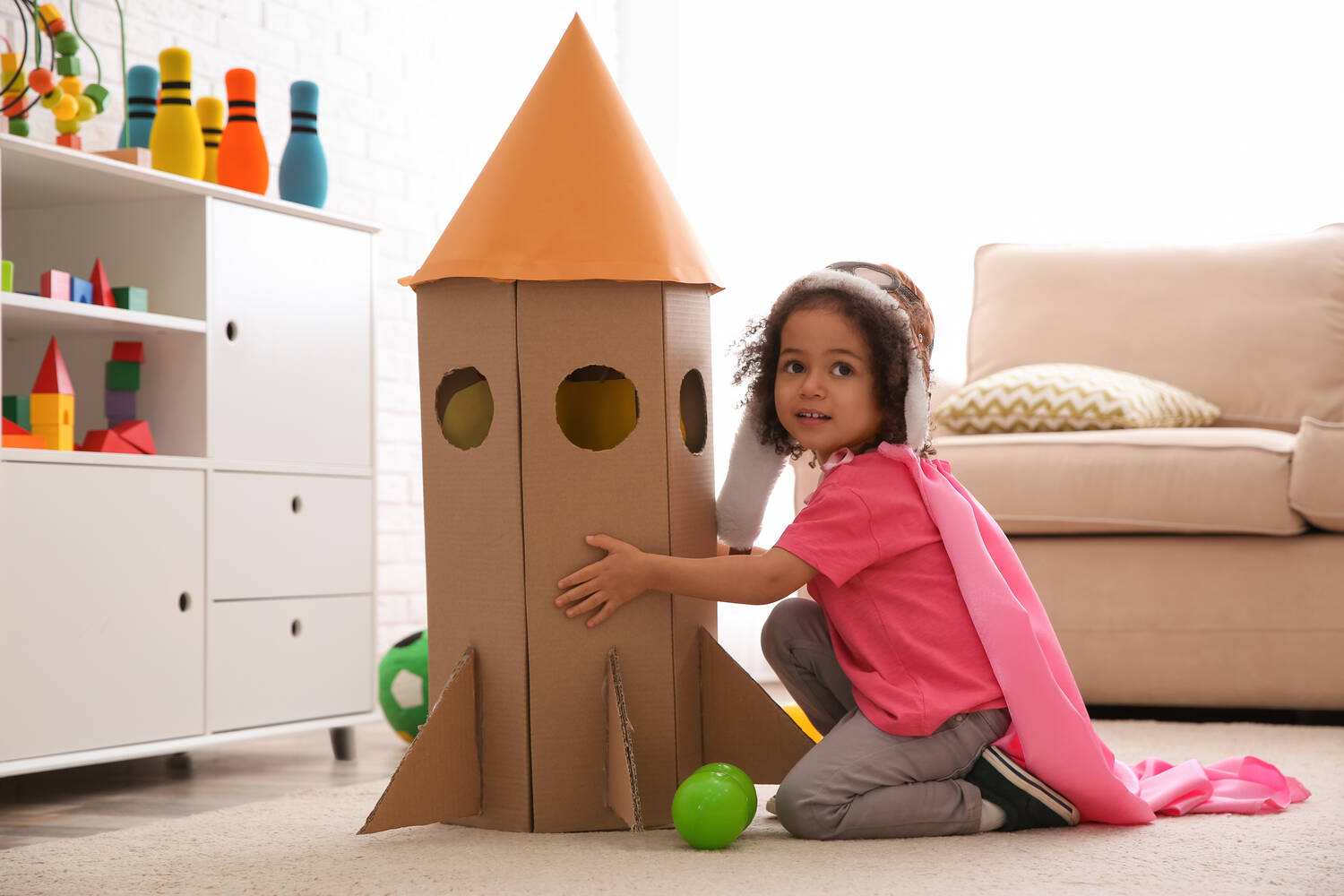
Props are useful tools for pretend or imaginary play and include costumes, toy tools, household items, and other objects that encourage kids to engage in role-playing, storytelling, and problem-solving activities (3).
6. Engage in Art Activities
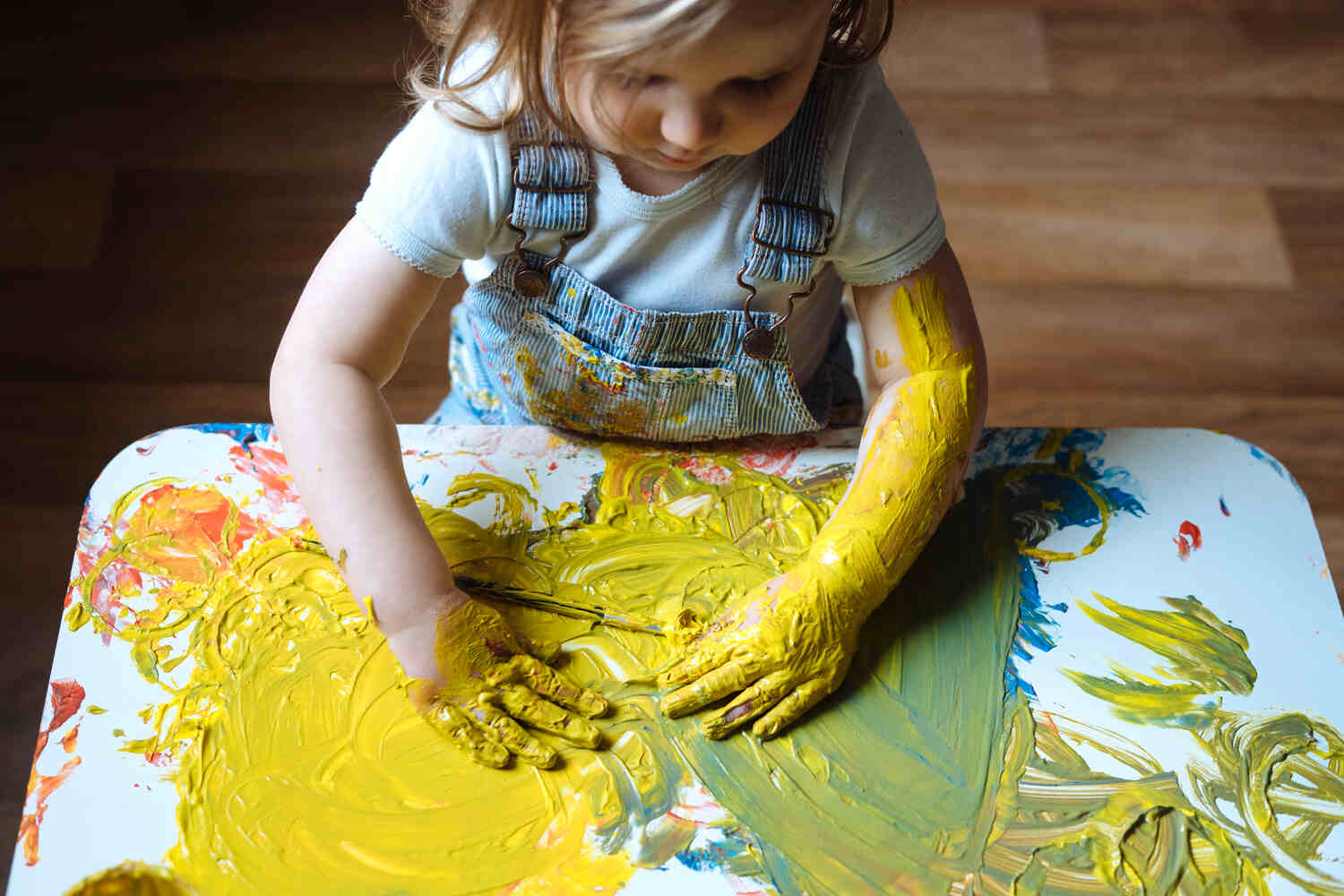
Drawing, painting, molding clay, building towers, cutting papers and sticking them on a page, blowing water colors all over a paper, making flowers with fingerprints – all these can make your toddler’s imagination run wild. Of course, you need to give them a free rein. Do not insist the sky be blue, or leaves to be green. Let them express their art the way they want.
7. Nature Walk

Go for a walk in a garden or a park with your little one. Carry a bag. Collect interesting items such as a fallen flower, leaf, stone, twig and so on. Once home, lay out all the items collected and encourage your toddler to talk about them.
8. Limit Screen Time
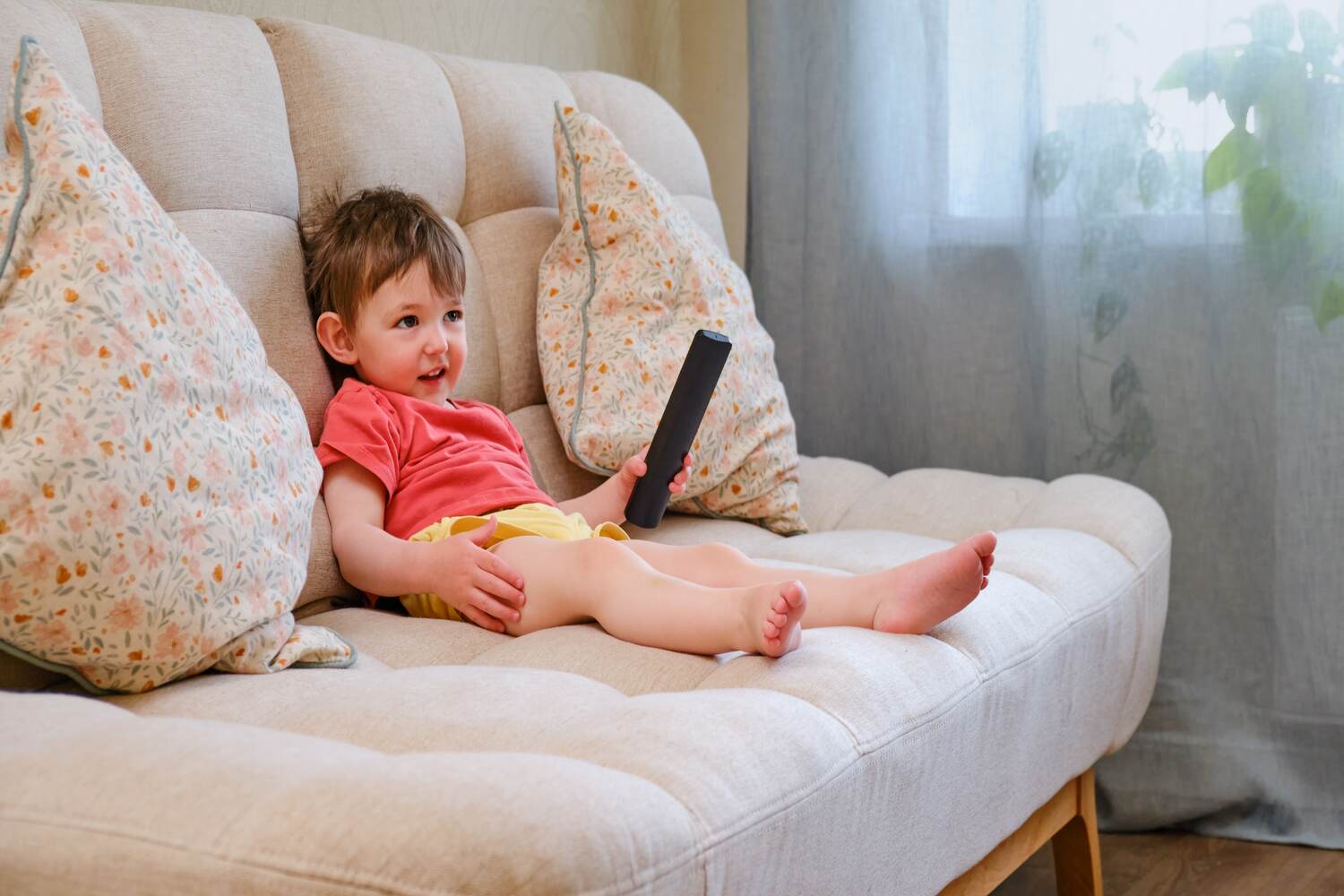
Too much of TV will ruin your toddler’s creativity. If they keep watching things on TV, chances are high that they will be exposed to ready-made imaginary content. This will ruin their own thoughts. They will no longer show interest in creation and innovation, or simply trying out new things around them.
9. Provide Open-Ended Toys
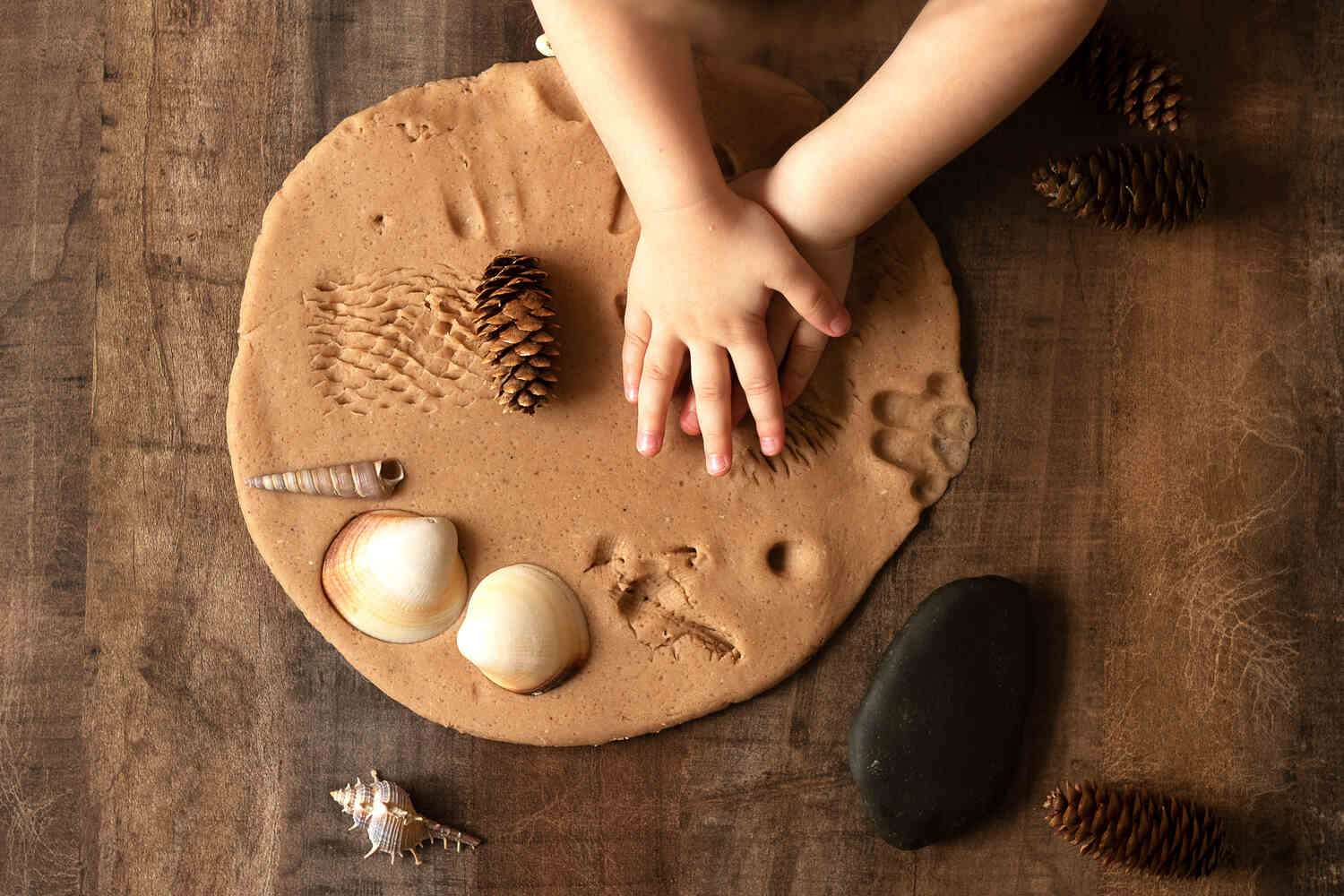
Open-ended toys include play dough, blocks that allow free exploration of ideas. Toddlers love to create buildings, castles, rail bridges and what not with these colorful blocks. Moreover, the sticky dough allows sensory stimulation along with nurturing creativity. They learn to experiment with diverse possibilities, thereby acquiring new usage of things around them.
10. Encourage Unstructured Play
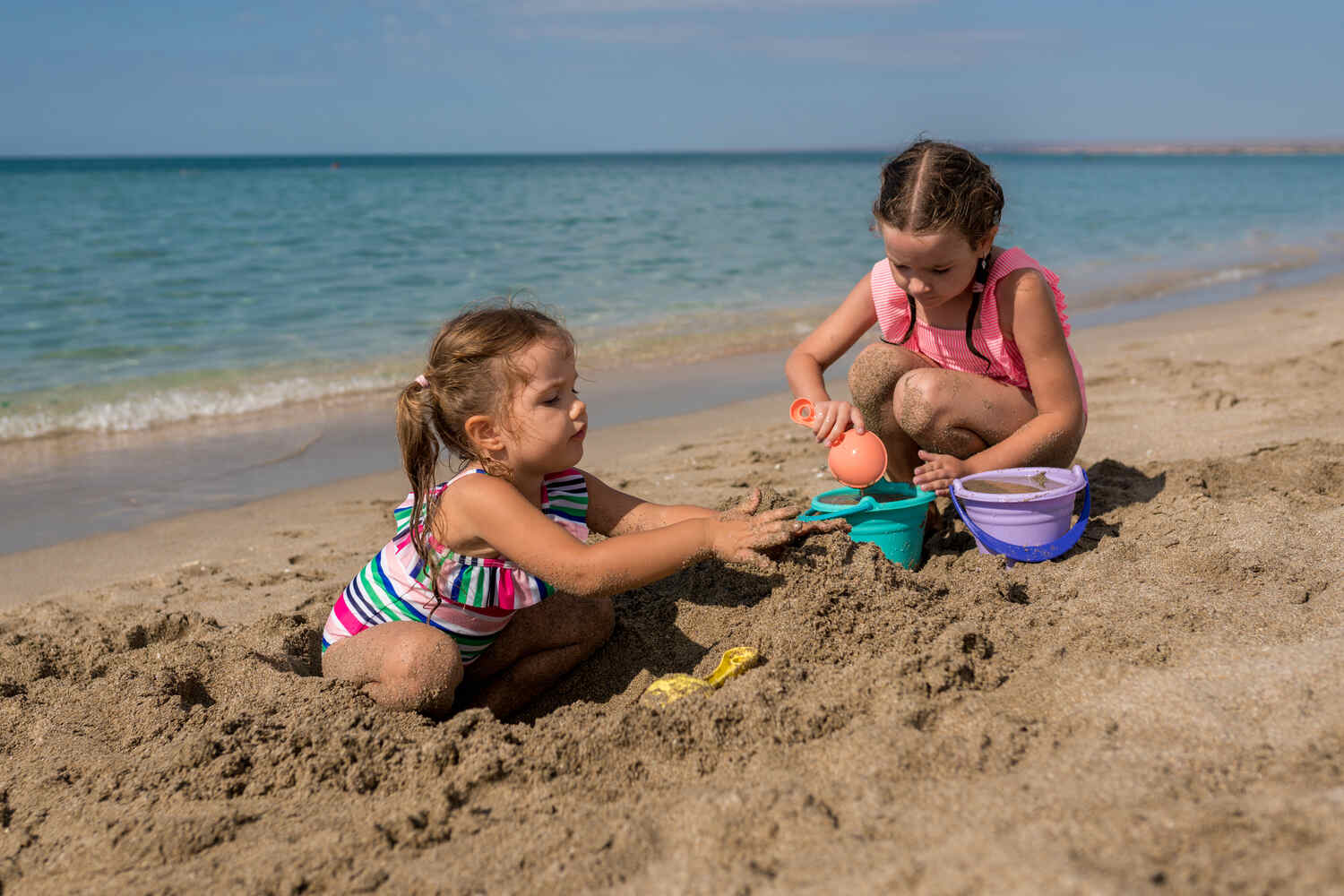
This is a free-play scenario where the toddler imagines a situation and plays on their own. These play moments allow creation of new ideas. Moreover, they call out characters that seem real to them by names. Thus, allowing social interaction and developing rich language.
What Will Your Toddler Learn Through Imaginative Play?
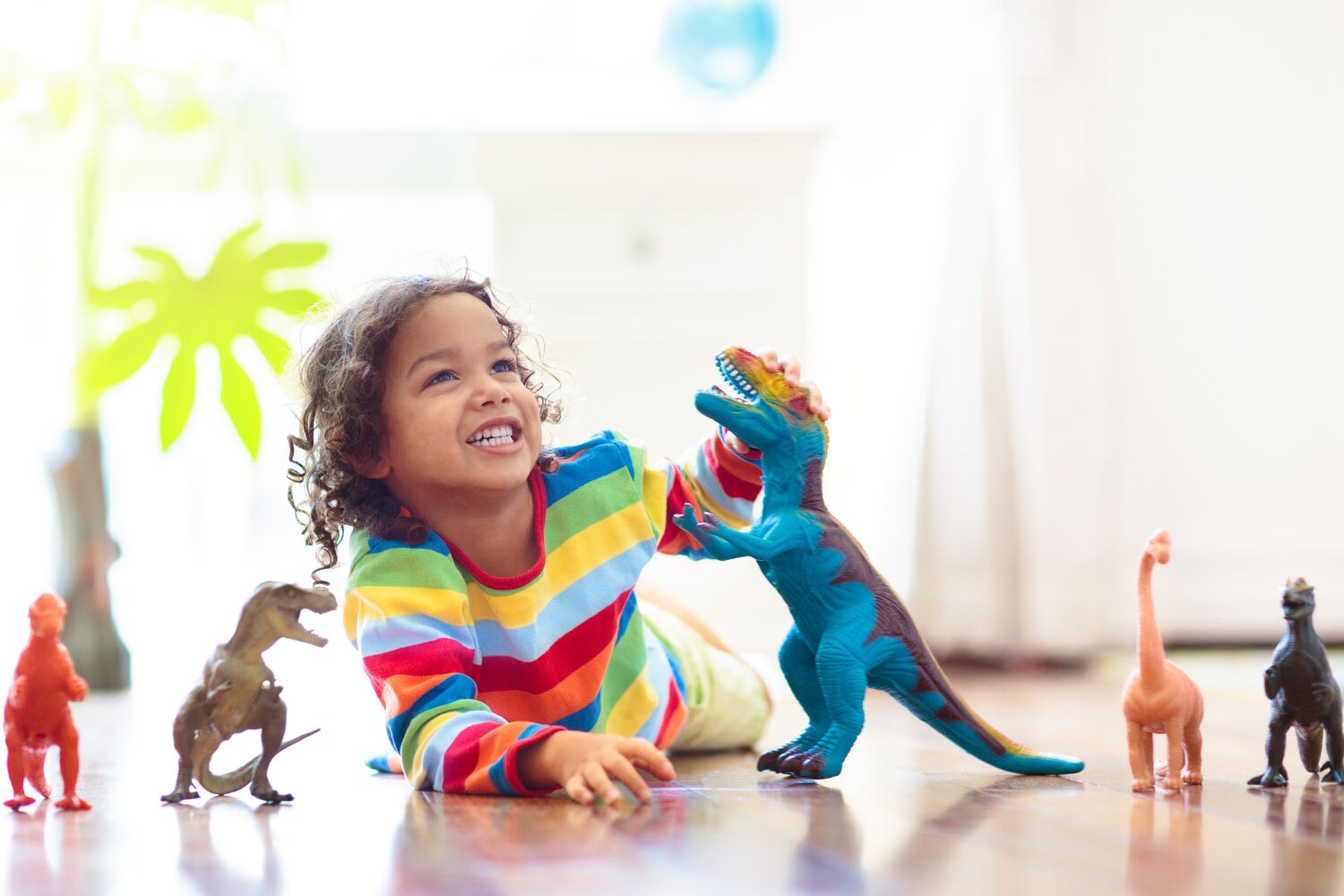
Your toddler will learn various things through imaginative play such as –
- Exploring imaginative scenarios and creating a fun world for themselves
- Helps to overcome difficulties that arise while pretend play is on
- Develops social skills
- Enhances their ability to communicate
- Expressing feelings through joyful, upset, and sad expressions while playing
How Messy Should You Let Your Toddler be?
As a parent, determining the extent of exploration for toddlers can be tricky. It hinges on your comfort level and context. At home, occasional messiness can fuel their imagination. For instance, rearrange furniture to create a tent. However, prolonged messy play, like with mud in the park, needs prevention from infection. Balancing timing, comfort, and household rules is key to fostering imaginative play.
Is it ok to Set Limits on Toddler’s Imaginative Play?
Yes, it is okay to set limits on toddler’s imaginative play to ensure their safety and respect for household rules. While encouraging creativity, parents can establish boundaries regarding behavior, materials, and play settings to create a safe space for both the toddler and others involved.
How to Avoid Fights Over Your Toddler’s Imaginary Play?
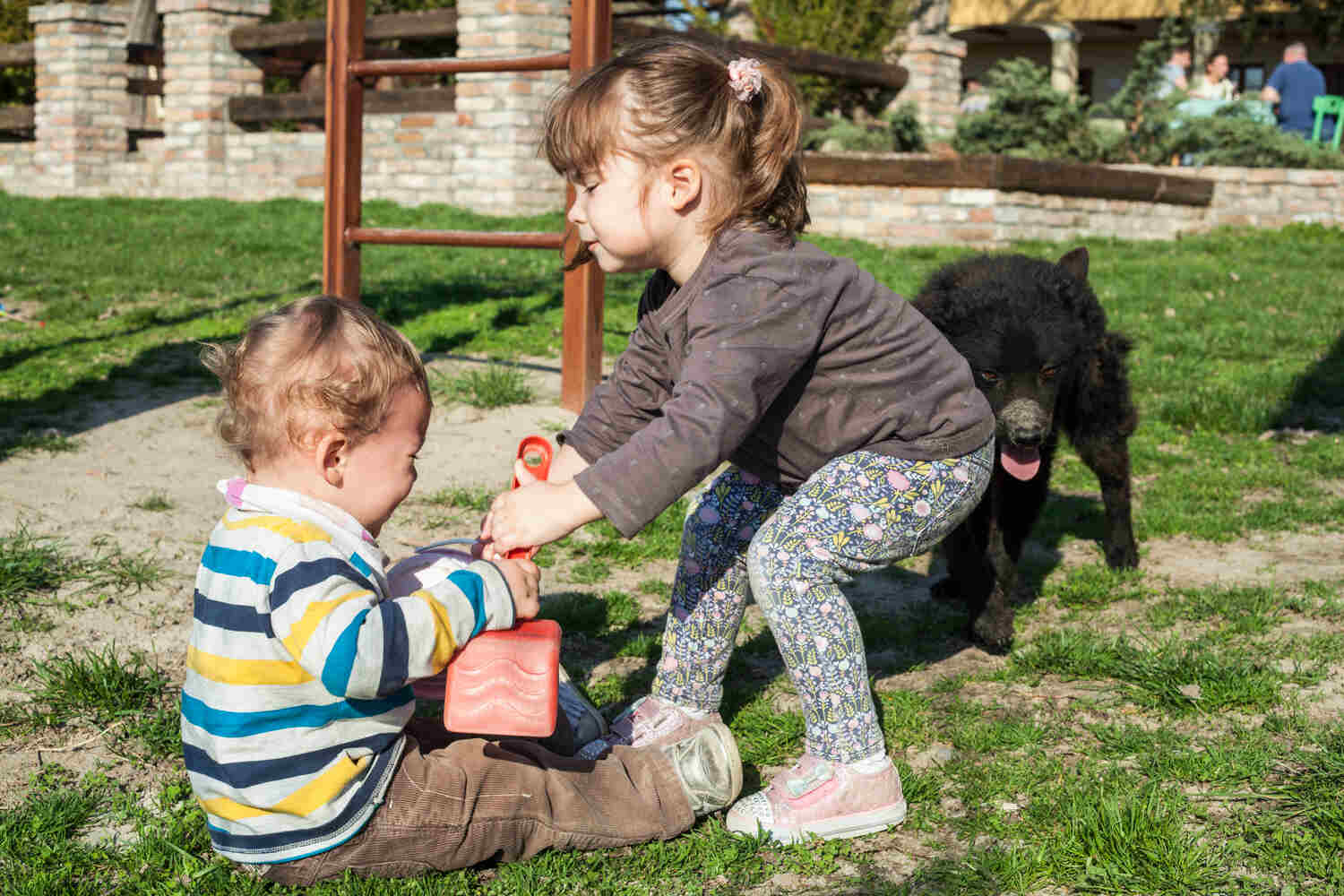
Fights with others while imaginative play is going on is quite common. As a parent, you can do the following things to avoid such squabbling-
- Set rules for toys to be shared, taking turns so that no toddler feels ignored
- Offer variety of toys and props so that no fights take place due to limited resources
- Step in when fights take place and help tiny tots resolve it peacefully
- Help them show cooperation and friendliness while playing
What to do Next to Encourage Toddler’s Imagination?

Being a parent to a toddler, you need to share their imagination and be a part of their story. In this way, they feel heard and accepted for their creative ideas. You can –
- Be a good listener while appreciating their imaginations
- Allow your toddler to tell you their daily activities
- Prompt them to describe their drawings or play dough items
- Shower appreciation always so that they feel motivated to think anew always
Parents can encourage a toddler’s imagination by celebrating their ideas and giving them a safe space to explore and create something unique. By nurturing imagination, you are helping them develop problem solving skills and a lifelong love for creativity and innovation.
FAQ’s
1. What Age do Toddlers Start Using Their Imagination?
Toddlers start using their imagination by 18 months to 2 years. At this time, they engage in exploration and pretend play. They try to play with a variety of toys and imitate other toddler’s actions.
2. What is a 3-Year-Old’s Imagination?
A 3-year-old can imagine names of characters while playing an imaginative scene. They are capable of using props and fantasizing scenes as if happening in a story.
3. How do I Spark my Toddler’s Creativity?
You can spark your toddler’s creativity by offering open-ended toys, or engage them in narrating a story. At times, helping them create artworks also boosts their imagination.
4. Do Autistic Toddlers Have Imagination?
Yes, autistic toddlers are capable of vivid imagination. They can draw well or show their talents in varied ways. These toddlers have unique abilities that can be nurtured through proper training.
References
- Imagination and social cognition in childhood – [https://www.ncbi.nlm.nih.gov/pmc/articles/PMC9539687/]
- A Review of Imaginary Companions and Their Implications for Development – [https://journals.sagepub.com/doi/10.1177/0276236621999324]
- The Role of Props in Promoting Imagination during Toddlerhood – [https://link.springer.com/article/10.1007/s13158-022-00336-9]

